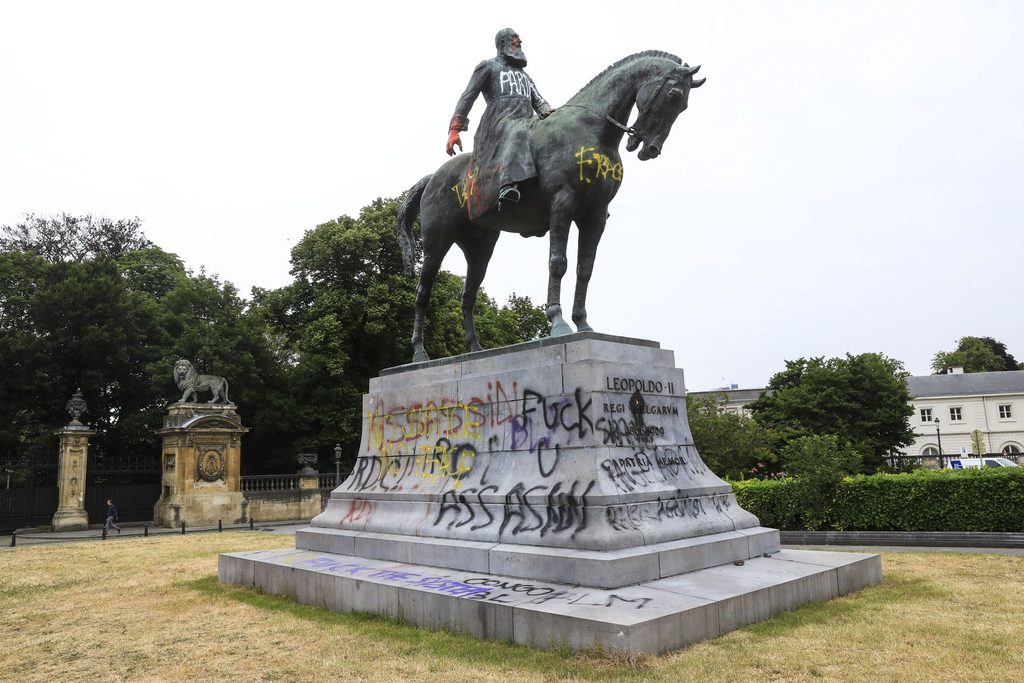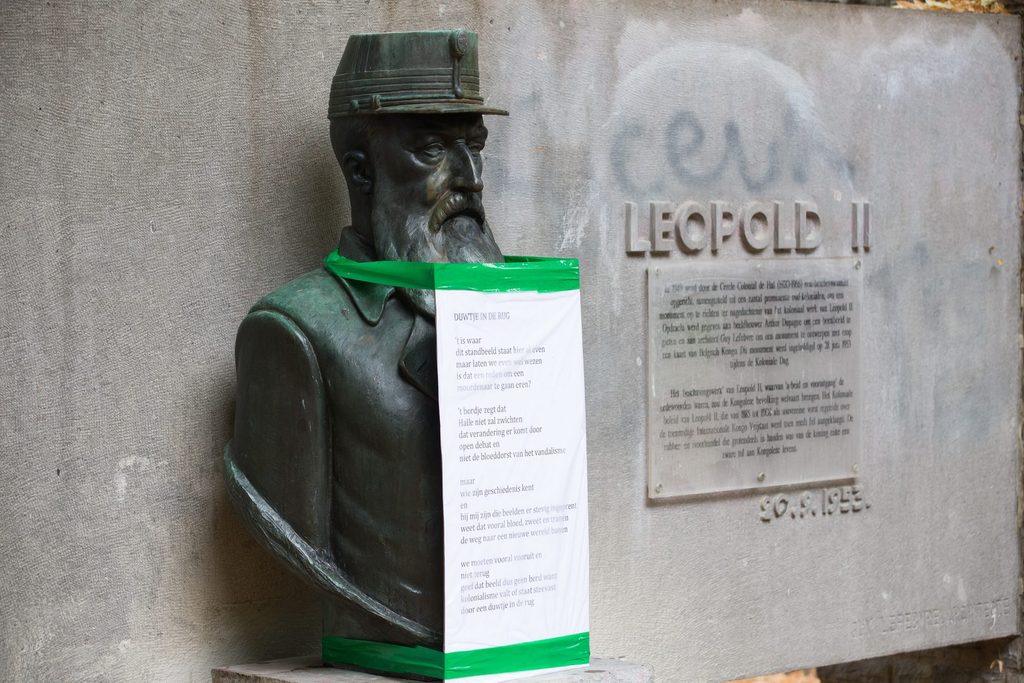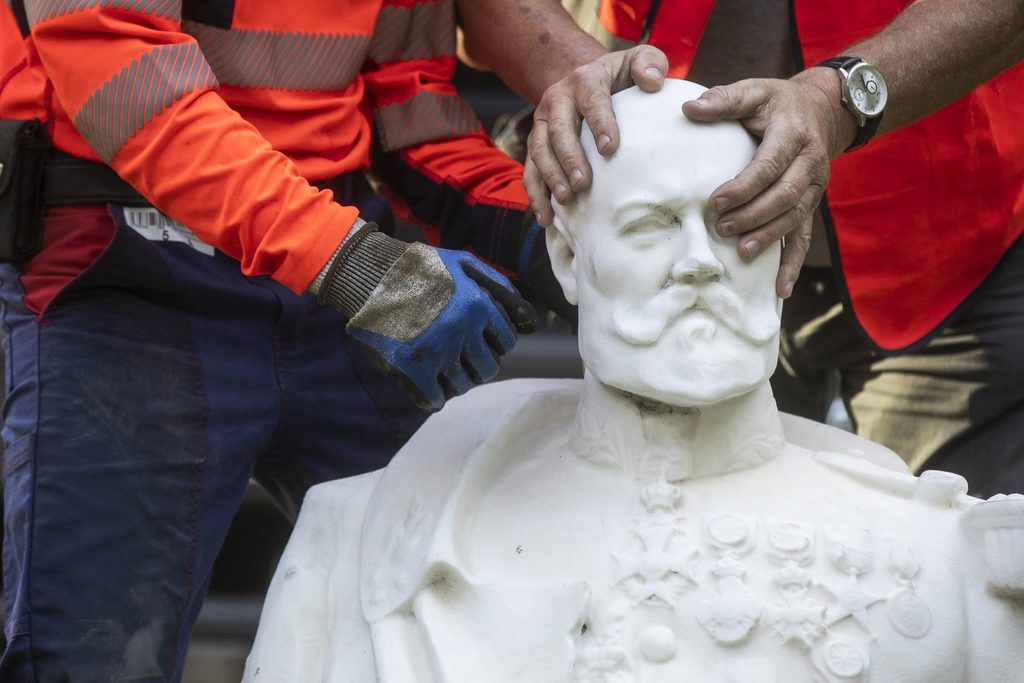From a monument in memory of the victims of Belgian colonialism to contextualising the statue of Leopold II, Belgium is taking its first steps to decolonise its public spaces.
The Federal Government and Brussels-Capital Region Government launched on Thursday the first concrete measures to reshape public spaces and federal institutions in Brussels, launching a number of joint initiatives.
On the federal level, the plan includes making efforts to further analyse the collections at the AfrikaMuseum in Tervuren. With a budget of €2.3 million, this measure is part of a draft bill to return goods that Belgium looted from the Democratic Republic of Congo during the colonial period.
The statue debate
Another key part of the project announced on Thursday is launching a call for artists and curators to present projects that contextualise the equestrian statue of Leopold II in the Royal Museum of Art and History in the Cinquantenaire Park.
The call to contextualise the work will officially be launched on the anniversary of Congo's independence, which took place on 30 June 1960. A bronze version of the statue near the Trône metro stop has repeatedly been defaced by activists.

Credit: Belga / Thierry Roge
In contradiction with the intentions of former Brussels State Secretary Pascal Smet and the suggestions made by the working group, the preliminary measures that were announced did not touch on removing the statute.
State Secretary Thomas Dermine stressed that the aim of not removing it but instead contextualising it, is to encourage the public to reflect on the principle of colonisation and the suffering of the victims.
"It is not about erasing this heritage that reflects the spirit of an era, but to put it in the present context and make it an opportunity to question our past and build together the coexistence of today and tomorrow," he said. The work should be unveiled in autumn 2024.
Beginning of Brussels' action plan
The final element of the proposed measures is the collaboration with Brussels for the concretisation of three actions from the region's action plan for the decolonisation of public space, presented by Smet earlier this year, for which €200,000 is being made available.

Statue of King Leopold II in the Albert park, Halle decided to put the statue back on his pedestal together with a plaque that reads 'Halle won't bow to vandalism'. Credit: Belga / Nicolas Maeterlinck
"Belgium's colonial past is still very present in public spaces in our capital city. Just think of statues, street names and numerous buildings and places," Smet's successor Ans Persoons said. "That colonial period is a dark page in our history that we are finally going to give it a space and understand it together."
The three actions include the possible creation of a centre for documentation, debate, events and exhibitions on the colonial theme in Brussels and Belgium, which would be housed in the Lever House on rue Royale.
The possibility of erecting a monument to the memory of the victims of the Belgian colonisation of Congo, Rwanda and Burundi, as well as a central regional repository to house statues and other colonial monuments removed from public spaces (as proposed by the working group), is also being analysed.
The entire Brussels plan consists of 14 concrete actions to either provide colonial heritage with the necessary context, or to adapt or remove it with the aim of developing a "more inclusive Brussels where every person feels recognised and valued."

